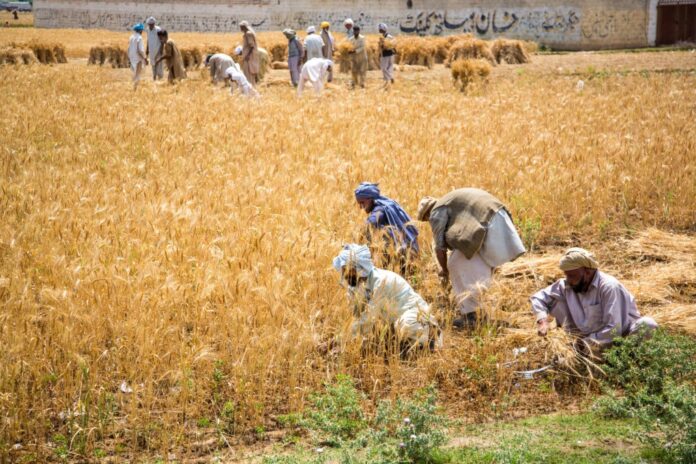LAHORE: Pakistan is now moving towards halting import of agricultural commodities following effective measures taken by the government, said Special Assistant to Prime Minister (SAPM) for Food Security and Research Jamshed Iqbal Cheema.
During a visit to the Federation of Pakistan Chambers of Commerce and Industry (FPCCI) on Saturday, he said Pakistan’s food demand climbed on back of growth in population.
“We have streamlined the procurement of wheat and ensured proper returns to farmers for their hard work by increasing wheat support price to Rs1,800 per 40kg from Rs1,400 besides offering subsidy on wheat flour to the end consumer,” he said.
He told businessmen that the government will continue to facilitate the common man.
Citing figures, he said that wheat flour consumption in Pakistan stood at 108kg per person annually. Though wheat production was in surplus of 1.5 million tonnes this year, the government imported three million tonnes to retain 120-day strategic reserves, Cheema clarified.
He announced that a food dashboard was being developed, which would monitor demand and supply of food as well as the storage situation.
“Magistrates are being appointed in every market to control price hikes,” he said.
He announced that Prime Minister Imran Khan would hold a convention with farmers on June 30 to take their input on policy formulation.
He reaffirmed that the government was committed to maintaining a balance in prices of produce for farmers, industry and the end consumers.
“There would be no shortage of agricultural raw material in Pakistan for next seven years,” he told the business community.
He added that the country was moving towards profitable agriculture and the government would construct warehouses in villages as well as offer interest-free loans for cold storage systems in rural areas.
He added that palm trees were also being planted along the coastal line of the country. The country would meet its need for palm oil by planting three million palm trees, he announced.
The SAPM added that the government was also focusing on enhancing olive yield and for this purpose, Rs8 billion had been allocated in the next financial year which would be distributed among farmers to produce high-quality olives.
“Pakistan will soon become the world’s largest olive producer,” Cheema said.
Comprehensive measures are being taken to increase maize production to eight million tonnes from the present 3.2 million tonnes.
According to the official, Rs4 billion had also been earmarked for enhancing cotton production and the country was expecting cotton output to stand at nine million bales this year.




